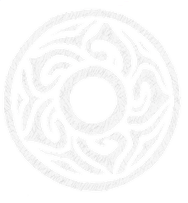Year of the Ear: Nursing in the Tropics
Ashley is one of our 2016 Apprentices in Sustainable Living. She has a Bachelor of Science in Nursing from the University of Florida. This post is about the challenges of nursing in the tropics, common ailments in the community and how these challenges are managed at Rancho Mastatal. If you would like to learn more about medicine outside of hospital settings, consider joining us this June for our annual Wilderness First Responder Certification.
The sun rises in Mastatal around 5:30 am, and with the light comes a symphony of sound. Buzzing, chirping, and humming act as constant and steady instruments to the jungle orchestra. Every morning without fail they fill the Hankey with music. In the comfort of my bed, I can hear the roosters crowing and a chorus of bird songs. This natural symphony signals the dawn of a new day. But recently many of the residents of Rancho Mastatal have been unable to hear this daily symphony. Tropical ear has literally blocked the music of the jungle.
Halfway through a bowl of breakfast pinto, a student from the visiting Villanova University approaches me with the familiar symptoms of hearing and ear discomfort. David had just returned from a trip to the local waterfall and fell victim to an ear full of trapped water. This condition is called swimmers ear and not ironically is also called tropical ear. What is a nurse to do in the tropics? No otoscope, no problem. Allow the ancient wisdom of observation to begin.
The best way to examine an ear is to pull the ear gently down and away from the face to straighten the ear canal. A headlamp is best for visualizing blockages. "If the gentle pulling of the ear causes pain, then the canal is infected.(1)" A simple recipe, despite limited resources, can be the front line defense for ear infections. "Drop into affected ear 1 spoon of vinegar with 1 spoon of boiled water 3 to 4 times a day. (2)" Fortunately, an ear infection is not what David has. My headlamp has spotted a crusted golden plug. "The ear canal cleans itself by moving dead skin from the eardrum out through the canal as if they were on a conveyor belt. Accumulated debris and earwax tends to trap water that gets into the ear canal during a shower or while swimming. The resulting wet, softened skin in the ear canal is more easily infected by bacteria and fungi. (2)"
David looks around nervously, aware his classmates are peering into his ear with me. Their faces scrunch up with amusement and wonder. David's ear needs to be irrigated. We sit at a bench around the corner and he comfortably lays down. I proceed to place 10 drops of mineral oil into his affected ear. His classmates are commenting on the size of David's golden wax build up.
If mineral oil is not present in your community any natural oil is a good substitute. The oil needs to be in the ear for 10 minutes to break up the earwax. With the help of his classmates' good company, the 10 minutes flies by. When you irrigate an ear, warm water is important. Using an irrigation syringe, I gently flush his ear. With his classmates on my heels, I feel them starting to lose hope as I continued to flush and flush. I gave his ear a grand finale flush and the golden treasures came pouring out. The "ohs" and "ahs" of his classmates shortly follow. David faces us with a look of confusion. "I can hear again!" He says remarkably as he catches a glimpse of the golden nuggets that left his ear.
Nursing in a small community has its challenges. With limited resources you are forced to get crafty. Books supplement my medical knowledge. The realm of Google and quick answers is unavailable. The lack of privacy can be daunting; as the majority of treatments are centered around meal times. The main house is the keeper of the medical supplies and the maker of all meals. Still, when David full force hugs me, I can feel his appreciation osmose into my body, up to my face where it turns into a smile. He thanks me for opening his ears to the symphony he's been missing. I've learned in the short time I've been part of this community that together we are capable of some very amazing things.
(1) Berkow, Robert M.D., The Merck Manual of Medical Info, 1997
(2) Werner, David. Where There is No Doctor: a Village Health Care Handbook, 1992.
NEWS AND NOTES
We have a number of life changing workshops coming up.
Please share around if you know anyone who is ready for a trip to beautiful Costa Rica, a swim in the waterfalls, nourished with homemade meals, and challenged with an intensive educational experience.
Abrazos,
The Ranch Crew




